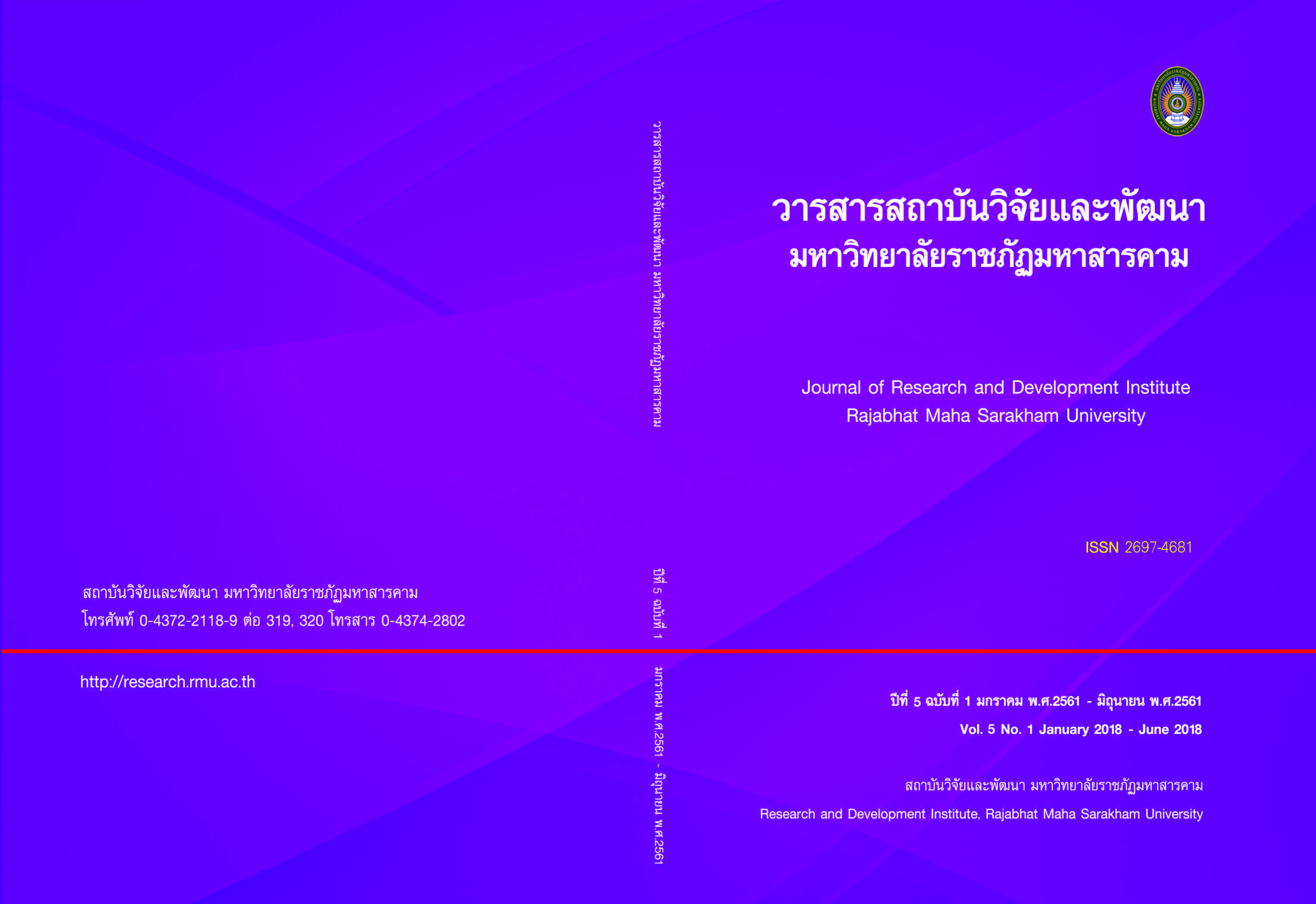Enhance Life Skills, Hygiene and Sanitation of Children with Mental Retardation Special Education Faculty of Education, Rajabhat MahaSarakham University
Keywords:
Enhance life skills, Sanitation, Children with Mental Retardation, Promote professional skillsAbstract
This research aims :To encourage special students to practice their own hygiene
skills; 2) to provide special education for students to pursue a career as a case study
by purposive sampling was identify that IQ = 65 (2012) at the Center for Special
Education. Rajabhat Mahasarakham University. Research tools Using 5 individualized
instruction plans (IIPs) and practical plans namely ; (1) The plan is based on the
practice time of 45 minutes a day, Monday through Friday, a total of 6 plans. (2)
Practice training, hand washing, nail washing, facial cleaning, brushing, shampooing,
hairdrying. There are 6 cards, 4 cards each. Map 1-6. (3) Record of observation of
behavior of case study while studying / Learning outcomes of individualized instruction
(IIP). (4) Observation Behavior, and (5) Skill assessment form for quality of activities. The
statistics used in the research were the mean, standard deviation. The research found
that
1. Hygiene Of children with intellectual disabilities in practice, hygiene is a factor
that encourages special Children with Mental Retardation to change behaviors and
encourage special children to develop.
2. From hygiene activities can reduce the burden of caring for special school
children. Parents in taking care of their daily living. This is a factor that encourages
special Children with Mental Retardation to change behavior. Make special children,
teachers and parents involved in the development of special children. Parents can
take home training. Make children special development.
3. Special children have improved. Can be self-help in health care is clean,
hygienic. And can be used for other people to earn a living, income families.
References
Janphen Loanorachet. (2001). The results of the training using the principle of job analysis for developing the cleaning clothes skills of Children with intellectual disabilities, Intelligence level 35-50. Master of Education Thesis (SpecialEducation) : Srinakharinwirot University.
Ministry of Education. (2009). National Education Act 1999 and Amended (No. 2) 2002. Bangkok : Organization of Transfer Products and Packging.
Phadung Arrayawinyoo. (1999). Education for Children with Special Needs. Bangkok : Glasses Publishing House.
Polloway, E. A., Patton, J. R., Smith, J. D., & Roderique, T. W. (1991). “Issues in programdesign for elementary students with mild retardation: Emphasis on curriculum
development”. Education and Training in Mental Retardation, 26, 142-150
Polloway, E.A. (1994). The Integration of Mildly Retarded Students in the Schools : A Historical Review. Remedial & Special Education. 5 (4) : 18-28
Suthida Horwattanakul and Bung-orn Tonpan. (2006). Basics of Education and InclusiveEducation. Bangkok : Suan Dusit Rajabhat University
Thaweesak Siriratlekha. (2006). Play for learning in autistic children. Bangkok: Printing House of Teachers, Ladprao.
Vygotsky, L. (1978). Problems of Method (pp. 52-75). In Mind in Society. (Trans. M. Cole).Cambridge, MA: Harvard University Press.
World Health Organization. (1994). Assessment of fracture risk and its application toscreening for postmenopausal osteoporosis : report of a WHO study group[meeting held in Rome from 22 to 25 June 1992]. Geneva : World Health Organization.
Downloads
Published
How to Cite
Issue
Section
License
Articles that are published are copyrighted by the authors of the articles







